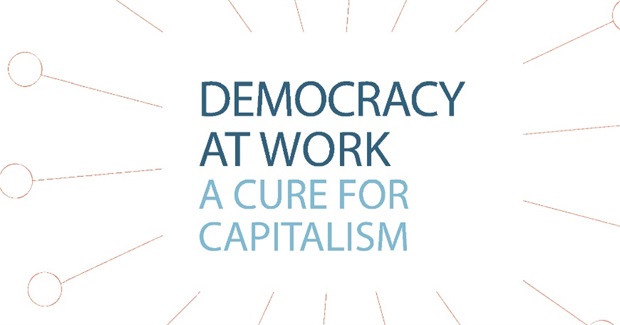georgephillip
Diamond Member
- Thread starter
- #1,281
Bringing democracy to the workplace would solve many of our problems:The market informs the capitalists how to use their resources. In essence we are all part of the decision in a capitalist system. That really wouldn't change under a socialist system of production.
Democracy at work is a wonderful step forward and should help to alleviate some of the social issues caused by capitalism.
Most adults spend at least half their waking lives in the workplace, yet capitalism requires them to suspend their democratic ideals in return for a regular paycheck.

There Is An Alternative.
Democratizing the Workplace through “Worker Self-Directed Enterprises”
I do enjoy Wolff's regular Economic Updates on youtube.
The term "Marxian economist" is an oxymoron.
Richard D. Wolff - Wikipedia
"Richard David Wolff (born April 1, 1942) is an American Marxian economist, well known for his work on Marxian economics, economic methodology, and class analysis.
"He is Professor Emeritus of Economics at the University of Massachusetts Amherst, and currently a Visiting Professor in the Graduate Program in International Affairs of the New School University in New York.
"Wolff has also taught economics at Yale University, City University of New York, University of Utah, University of Paris I (Sorbonne), and The Brecht Forum in New York City..."
"Wolff earned a BA magna cum laude in history from Harvard in 1963 and moved on to Stanford—he attained an MA in economics in 1964—to study with Paul A. Baran.
"Baran died prematurely from a heart attack in 1964 and Wolff transferred to Yale University, where he received an MA in economics in 1966, MA in history in 1967, and a PhD in economics in 1969.
"As a graduate student at Yale, Wolff worked as an instructor.[1] His dissertation, 'Economic Aspects of British Colonialism in Kenya, 1895–1930',[10] was eventually published in book form in 1974.[11]"
Your point? He's a con man. So-called "Marxian economics" is a hoax.
Have you bothered to read any of Wolff's work?
http://ouleft.org/wp-content/uploads/Contending-Economic-Theories-Wolff.pdf (P. 133)
"Marxian theory is a class theory.
"Its originality lies not in claiming that classes exist; people have said that for thousands of years and used class to understand their societies.
"Marx’s originality lies in how he understands and defines class, then derives his notion of exploitation, and finally shows how class and exploitation influence people’s conceptions, perceptions, and actions.
"Marxian theory concludes that class exploitation occurs at multiple sites in modern society and that our politics, literature, family structures, sports, television programing, religions, and incomes are all complexly shaped by exploitation."
"Of particular relevance to this chapter, we will explain how prices, incomes, wealth, and so on, are shaped by class exploitation."


